|
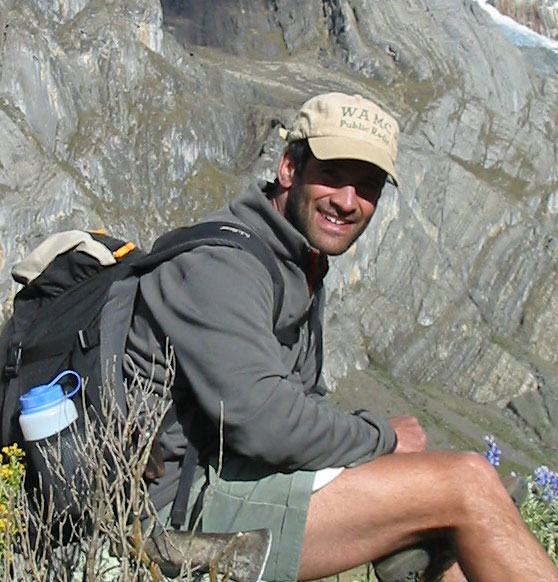 DONALD T. RODBELL, Chair of Geology (University of Colorado), Geology of Climate change. Geologic record of Climate change, glacial records of climate change, climate change in the tropical Andes. Courses in Landscape evolution, Lakes and Environmental Change, Environmental Geology. DONALD T. RODBELL, Chair of Geology (University of Colorado), Geology of Climate change. Geologic record of Climate change, glacial records of climate change, climate change in the tropical Andes. Courses in Landscape evolution, Lakes and Environmental Change, Environmental Geology.
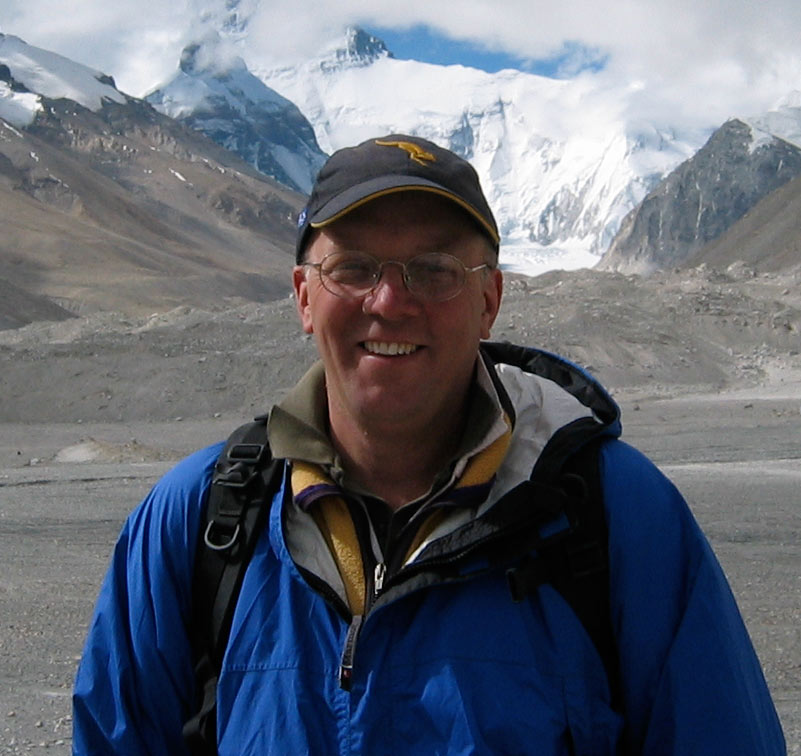 JOHN I. GARVER, (University of Washington) Geology. Research on the evolution of Mountains, geologic hazards, and the effects of hazards on society including flooding on the Mohawk River and evolution of the Mohawk watershed. Courses on the history of the Earth, Natural disasters, Carbonate sedimentology, Sedimentology and stratigraphy. JOHN I. GARVER, (University of Washington) Geology. Research on the evolution of Mountains, geologic hazards, and the effects of hazards on society including flooding on the Mohawk River and evolution of the Mohawk watershed. Courses on the history of the Earth, Natural disasters, Carbonate sedimentology, Sedimentology and stratigraphy.
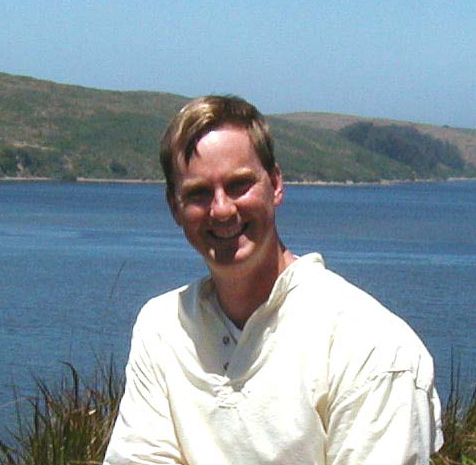 JEFF CORBIN, (University of North Carolina) Ecology. Research on interactions between plant composition and ecosystem dynamics, particularly as it relates to the invasion of non-native species and habitat restoration. Courses in Heredity, Evolution and Ecology (Bio 102), Intro to Environmental Studies (ENS 100), Plant Ecology (Bio 324) JEFF CORBIN, (University of North Carolina) Ecology. Research on interactions between plant composition and ecosystem dynamics, particularly as it relates to the invasion of non-native species and habitat restoration. Courses in Heredity, Evolution and Ecology (Bio 102), Intro to Environmental Studies (ENS 100), Plant Ecology (Bio 324)
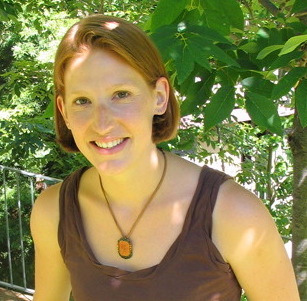 LAURA MACMANUS-SPENCER, (University of Minnesota) Environmental Chemistry. Research on the fate and transport of organic contaminants in natural waters and soils. Courses in Environmental Chemistry.Quantitative Chemistry, Chemical Instrumentation. LAURA MACMANUS-SPENCER, (University of Minnesota) Environmental Chemistry. Research on the fate and transport of organic contaminants in natural waters and soils. Courses in Environmental Chemistry.Quantitative Chemistry, Chemical Instrumentation.
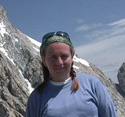 HOLLI M. FREY (University of Michigan), Volcanic Hazards. Research interests include the eruptive history of volcanic fields, and the geochemical, geochronological, and physical aspects of continental magmatic systems. Active research aimed at evaluating the hazards associated with volcanoes in Mexico. HOLLI M. FREY (University of Michigan), Volcanic Hazards. Research interests include the eruptive history of volcanic fields, and the geochemical, geochronological, and physical aspects of continental magmatic systems. Active research aimed at evaluating the hazards associated with volcanoes in Mexico.
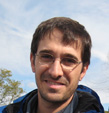 DAVID P. GILLIKIN (Vrije Universiteit Brussel (Belgium)), Biogeochemistry. Research interests include using bivalve (clams & oysters) shell geochemistry to reconstruct climate and environmental change as well as estuarine and freshwater aquatic biogeochemistry. Courses in Stable Isotopes in Environmental Science, Oceanography and Biogeochemistry DAVID P. GILLIKIN (Vrije Universiteit Brussel (Belgium)), Biogeochemistry. Research interests include using bivalve (clams & oysters) shell geochemistry to reconstruct climate and environmental change as well as estuarine and freshwater aquatic biogeochemistry. Courses in Stable Isotopes in Environmental Science, Oceanography and Biogeochemistry
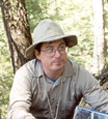 KURT T. HOLLOCHER (University of Massachusetts), Chemical Transport, Chemistry of Natural Systems. Geochemistry of water and rock. Transport in geochemical systems including surface and ground water. Analytical techniques including ICPMS, Ion Chromatograph, and Scanning Electron Microscope. KURT T. HOLLOCHER (University of Massachusetts), Chemical Transport, Chemistry of Natural Systems. Geochemistry of water and rock. Transport in geochemical systems including surface and ground water. Analytical techniques including ICPMS, Ion Chromatograph, and Scanning Electron Microscope.
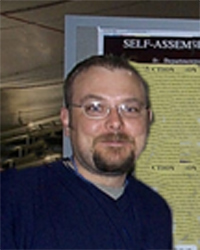 MICHAEL HAGERMAN (Northwestern University) Inorganic chemistry Research Current research involves the synthesis and extensive characterization of organic monomers and polymers on the surface of and intercalated within inorganic host assemblies including clays, zeolites, and mesoporous materials. Courses in Introductory Chemistry, and Inorganic Chemistry. MICHAEL HAGERMAN (Northwestern University) Inorganic chemistry Research Current research involves the synthesis and extensive characterization of organic monomers and polymers on the surface of and intercalated within inorganic host assemblies including clays, zeolites, and mesoporous materials. Courses in Introductory Chemistry, and Inorganic Chemistry.
 STEVE RICE (Duke University), Ecology and Conservation Biology. Research interests in the ecology and physiology of mosses; conservation biology, and the Ecology of the Albany Pine Bush Preserve. Courses in Physiology of Cells and Organisms; Conservation biology; Introduction to Bioengineering; Plant Biology, and Forests of the Northeast. STEVE RICE (Duke University), Ecology and Conservation Biology. Research interests in the ecology and physiology of mosses; conservation biology, and the Ecology of the Albany Pine Bush Preserve. Courses in Physiology of Cells and Organisms; Conservation biology; Introduction to Bioengineering; Plant Biology, and Forests of the Northeast.
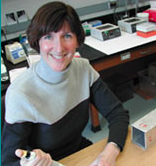 KATHLEEN LoGIUDICE (Rutgers University), Ecology and Wildlife conservation. Research Interests: Disease Ecology and wildlife conservation; the relationship between diversity and Lyme disease risk; small mammal community dynamics; Allegheny woodrat conservation. Courses in Heredity, Evolution and Ecology, and Ecology. KATHLEEN LoGIUDICE (Rutgers University), Ecology and Wildlife conservation. Research Interests: Disease Ecology and wildlife conservation; the relationship between diversity and Lyme disease risk; small mammal community dynamics; Allegheny woodrat conservation. Courses in Heredity, Evolution and Ecology, and Ecology.
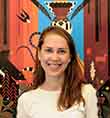 JENNIFER T. BISHOP (North Carolina State University), Ecology. Research interests include fecundity and conservation of Neotropical migrants in the Albany Pine Bush and Bahama Yellowthroats in the Bahamas archipelago. Courses in Ornithology, Intro. to Environmental Studies, and Heredity, Evolution, & Ecology. JENNIFER T. BISHOP (North Carolina State University), Ecology. Research interests include fecundity and conservation of Neotropical migrants in the Albany Pine Bush and Bahama Yellowthroats in the Bahamas archipelago. Courses in Ornithology, Intro. to Environmental Studies, and Heredity, Evolution, & Ecology.
|

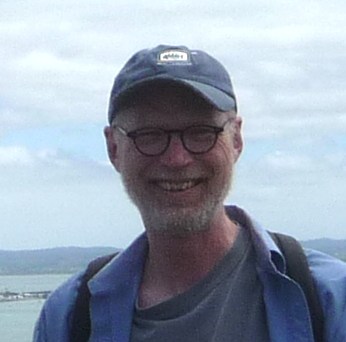 J. DOUGLASS KLEIN (University of Wisconsin) Industrial Organization.
J. DOUGLASS KLEIN (University of Wisconsin) Industrial Organization. DONALD T. RODBELL, Chair of Geology (University of Colorado), Geology of Climate change
DONALD T. RODBELL, Chair of Geology (University of Colorado), Geology of Climate change
 JEFF CORBIN, (University of North Carolina) Ecology
JEFF CORBIN, (University of North Carolina) Ecology LAURA MACMANUS-SPENCER, (University of Minnesota) Environmental Chemistry.
LAURA MACMANUS-SPENCER, (University of Minnesota) Environmental Chemistry. HOLLI M. FREY (University of Michigan), Volcanic Hazards.
HOLLI M. FREY (University of Michigan), Volcanic Hazards. DAVID P. GILLIKIN (Vrije Universiteit Brussel (Belgium)), Biogeochemistry.
DAVID P. GILLIKIN (Vrije Universiteit Brussel (Belgium)), Biogeochemistry. KURT T. HOLLOCHER (University of Massachusetts), Chemical Transport, Chemistry of Natural Systems.
KURT T. HOLLOCHER (University of Massachusetts), Chemical Transport, Chemistry of Natural Systems. MICHAEL HAGERMAN (Northwestern University) Inorganic chemistry
MICHAEL HAGERMAN (Northwestern University) Inorganic chemistry  STEVE RICE (Duke University), Ecology and Conservation Biology.
STEVE RICE (Duke University), Ecology and Conservation Biology. KATHLEEN LoGIUDICE (Rutgers University), Ecology and Wildlife conservation.
KATHLEEN LoGIUDICE (Rutgers University), Ecology and Wildlife conservation. JENNIFER T. BISHOP (North Carolina State University), Ecology.
JENNIFER T. BISHOP (North Carolina State University), Ecology.
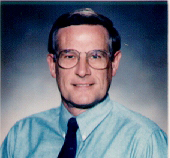
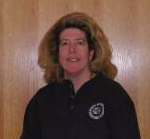 ILENE M KAPLAN, (Princeton University) Sociology.
ILENE M KAPLAN, (Princeton University) Sociology.
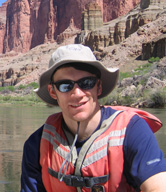 ANDREW MORRIS (University of Virginia), History.
ANDREW MORRIS (University of Virginia), History.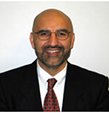 Mohammad Mafi, PhD, PE, LEED-AP (Penn State), Structural Engineering.
Mohammad Mafi, PhD, PE, LEED-AP (Penn State), Structural Engineering.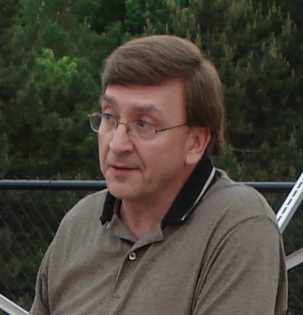 RICHARD D. WILK (Drexell University), Energy and the Atmosphere. Research on combustion, energy conversion and utilization, and alternative and advanced energy systems, especially solar energy, and fuel cells. Courses in thermodynamics, heat transfer, solar energy, and environmental science and other courses in combustion, compressible flow, and transport phenomena
RICHARD D. WILK (Drexell University), Energy and the Atmosphere. Research on combustion, energy conversion and utilization, and alternative and advanced energy systems, especially solar energy, and fuel cells. Courses in thermodynamics, heat transfer, solar energy, and environmental science and other courses in combustion, compressible flow, and transport phenomena